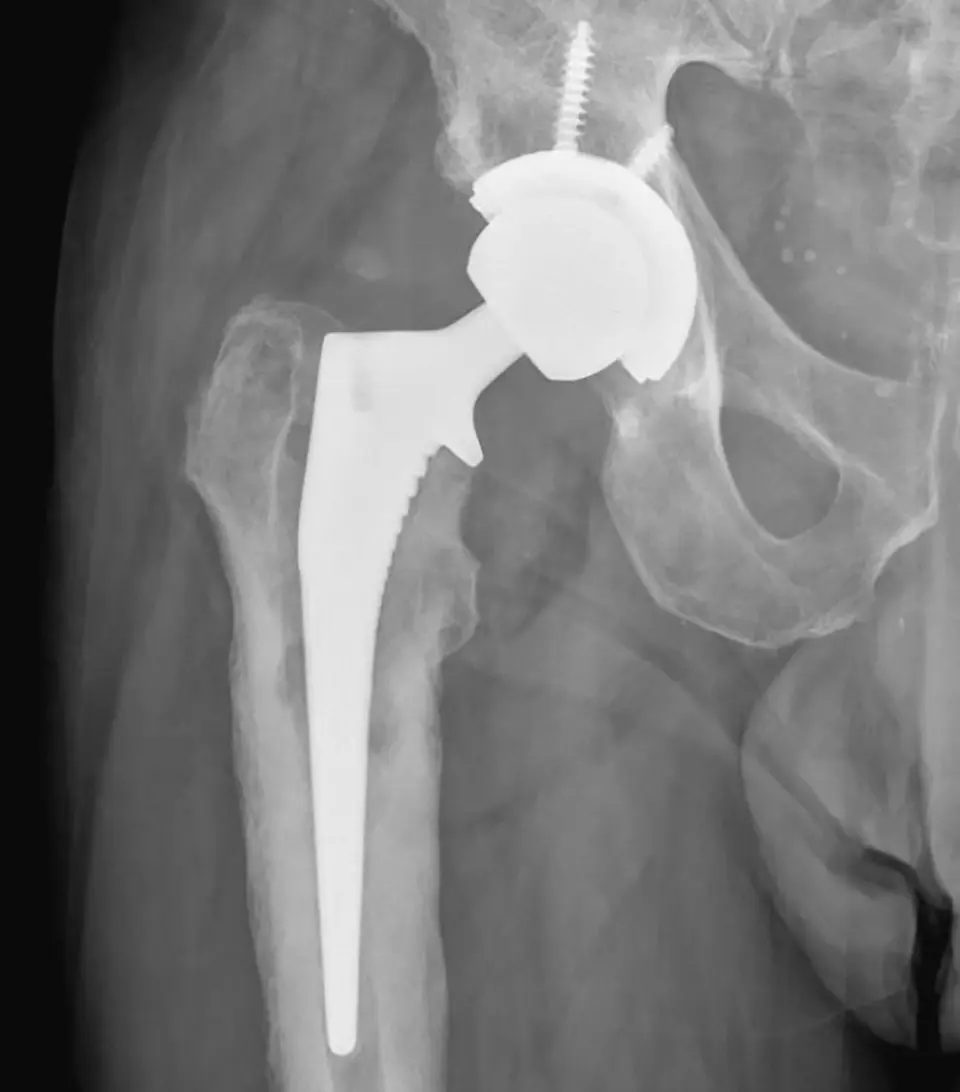Failing Total Hip Replacement

The evidence for the lifespan of a total hip replacement is that roughly 85% will last 20 years and 65% will last 25 years. We hope that with our modern materials this lifespan will increase and fewer hips will need ‘re-do’ surgery. That being said, some hip replacements will not last this long and will need to be revised (re-done) before this time. This can be for a number of technical reasons but, in simple terms, it is usually because part or all of the hip replacement has become loose. On occasion, the hip will need to be revised because it has started to dislocate and you will have lost trust in how it functions.
If a hip replacement is starting to fail and become loose it will usually cause pain. This can begin with pain on impact (such as stepping down off a curb). It can progress to pain on weightbearing and then pain at rest. Much like arthritis, this pain can be felt in a variety of locations. Commonly though, pain is felt in the groin, the buttock or down the thigh towards the knee. This can be quite a deep ache-like pain. Sometimes you will feel clicking/clunking.
If a hip replacement is dislocating and unstable it will have required admission to a hospital emergency department to put it back in joint under sedation. Normally this will be followed by a period of rehabilitation with physiotherapy and usually a review with your original surgeon. If the hip dislocates on a number of occasions, especially during safe activities, then it is time to consider the option of revision hip surgery.
Some hip replacements or resurfacings have a ball and socket that come into contact which are both made of metal. Some of these have excellent long-term results, but many failed much earlier than expected. The debris generated by these two metal surfaces coming into contact can cause reactions in the soft tissues around the hip and cause significant damage. We are seeing this less and less as many of these hips have already been revised. However, if you have one of these hips and have concerns, I will be very happy to review you.
If you attend clinic with a problem with a hip replacement, I will want to get a full history of the hip replacement and your experience of it. You will normally have xrays when you arrive. It is likely that you will also need blood tests and further imaging which will include a CT scan and sometimes an MRI scan. If the reason for failure is simple and easy to resolve, it may be suitable for your revision to be carried out in the private hospital setting. Sometimes, when a case is very complex, I will need to transfer your care to Southmead hospital where there is greater support and equipment to deal with major revisions.

Expert in his field. Warm and friendly manner but at the same time exuding an air of professionalism which gave me much confidence in undertaking the operation. Extremely informative throughout the process. Kind and sensitive... never felt rushed.
Verified Patient, 13/06/2023

